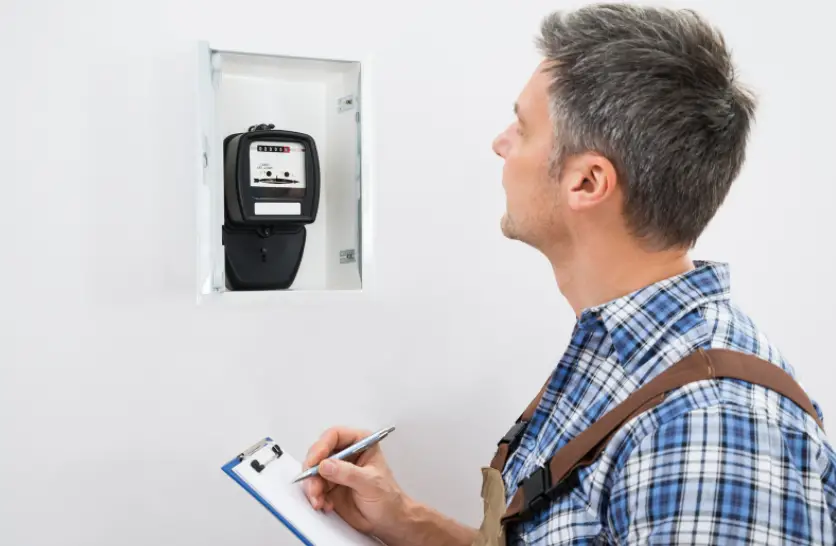
If you are on a tight budget at home, you may wonder: do air purifiers use a lot of electricity? Air purifiers perform a great job when it comes to cleaning indoor air, but you may be curious if they significantly add up to your monthly bill or not.
Like most home appliances, knowing the electrical consumption of your air purifier comes to mind when you consider savings in the long run. However, as with any powered appliances at home or in the office, the overall consumption will still generally depend on its usage.
However, aside from how much you use your air purifier, many factors do come into play, such as the air quality in your area, by which an air purifier might need to work extra hard, consuming more power in the process. Moreover, if you’re looking for the best air purifier on a budget, go for an energy-efficient unit.
Is it expensive to run an air purifier?
The short answer is no, but it depends. The explanation: air purifiers mostly run at 50 watts (equivalent to running a laptop), but this consumption can change depending on the following:
1. Model of the air purifier
Some air purifiers do have different running wattages so it’s always best to know from the manufacturer. Look for the wattage of the air purifier, which may also differ depending on the fan speed that you use.
2. Fan speed
As mentioned above, fan speed may change the amount of power that the air purifier uses. A higher fan speed is more suited for hay fever season, such as in spring, so be wary of slightly higher power consumption during that time.
3. Eco mode features
Today, most brands have an eco mode that lets you run the air purifier silently in the background while still cleaning the air. This will help a lot if you just want to clean indoors without consuming a lot of power. We like air purifiers that are Energy Star certified.
4. Amount of dust in your area
If you live in an industrial setting where smog is a problem, there’s a big chance that you’ll need a more powerful air purifier with much more power consumption and filtering capacity.
5. Time used
The amount of time you use an air purifier at its highest speed could also affect the overall power consumption of the unit.
6. Area or room size
How big is your room? Is there furniture there that is prone to catching dust? Bigger rooms may take more time and power to clean as compared to smaller rooms. That’s why we suggest always looking into the specifications of the brand/model to match it with your room size.
7. How often you clean/maintain your air purifier
A clean filter system will help the air purifier spend less power in cleaning your indoor space. Make sure to always check your filter for signs of dust or if it needs to be replaced.
How much electricity does an air purifier take?
As mentioned above, air purifiers will run at 50 watts more or less. However, to maintain such an average consumption, you have to keep in mind the following:
- Always use its timer so it doesn’t run excessively when you don’t need it
- Consider models with sensors to match the fan speed with the pollution levels
- Clean or replace the filter regularly as it will affect the unit performance
How many hours a day should you run an air purifier?
To get the full effect of your air purifier, it’s best to run it 12 to 24 hours, if possible. Moreover, to ensure that your air purifier is doing its job properly, you should know to have a strategic placement to efficiently clean dust and debris from the air.
So, where should I place my air purifier? The most common answer to that is an area that has good airflow so that you aren’t blocking the unit from cleaning the room.
Are air purifiers worth it?
Absolutely! Air purifiers have a lot of benefits, especially if you have the following situations in your living area:
1. You live in urban areas with terrible pollution
Urban areas with living spaces such as apartments and condo units are more prone to pollution due to high traffic volume and industrial settings. If you live in a big city, you’ll want an air purifier to help you breathe easier.
2. You have pets around the house
If you find that your dog and/or cat leaves behind a significant amount of pet dander on your couch and in the air, an air purifier can help clean it up. Moreover, some air purifiers can absorb pet smells.
3. You frequently have guests at home
This is especially if said guests have uncontrollable smoking habits or if you need to frequently cook food for them. Aside from the tobacco smell, fried foods do make indoors get a stuffy odor. Air purifiers with activated carbon filters will eliminate such bad odors from the air.
4. You or someone in the family has allergies/asthma
People with asthma, allergies, or any respiratory conditions will benefit from air purifiers because such units filter the air from dust and small particles. If you or someone in the family is prone to sneezes and asthma attacks, air purifiers can help alleviate symptoms of such health problems.
5. You have a smelly room or house
Air purifiers are one of the best methods on how to make your house smell good without candles. However, you must have an air purifier that comes with an activated carbon/charcoal filter to absorb the bad smells indoors for this to work.
Conclusion
To wrap it up, air purifiers aren’t very costly to run, provided that you know its specifications, how often you use it, and if you clean it properly so that the dust won’t settle and make it hard for your unit to run. When maintained properly, air purifiers will serve you with clean and healthy air for a long time!


